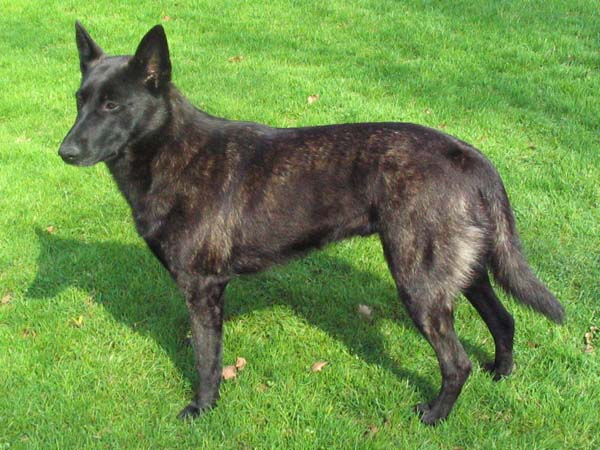De gelede Rechtsorde
Export Control of Dogs to Israel: Dual-Use Items under EU Law
On 9 February, the Dutch Minister for Foreign Trade and Development Cooperation wrote to the Dutch Parliament a letter on “export controls on dogs”. In her letter, the Minister informed the Dutch Parliament that there is no existing legal basis for restricting dogs to be exported to Israel. What are the “export controls of dogs” all about?Dutch-bred dogs against Palestinians
The Minister’s letter is in response to the ongoing controversy in the Netherlands regarding the export to Israel of so-called “service dogs” which are bred in the Netherlands. On 26 October last year, NRC Handelsblad, a Dutch national newspaper, reported that the Israeli army has been using the Dutch-bred dogs against Palestinians in the occupied territories. According to the same news article, a Dutch breeder company, Four Winds K9, has been supplying dogs to the Israeli army for more than 23 years. The exact number of exported dogs is unknown, inasmuch as the export control regime does not distinguish service dogs from any other animals. An on-line petition was submitted this month to the Dutch government to halt the export of attack dogs to Israel.
Preliminary issues on facts
There is obviously a factual question as to precisely under what circumstances Palestinians are “bitten by Dutch service dogs” as reported in NRC’s news article in October last year. For this issue, we still need to seek independent sources to verify the circumstances. It is at any rate true that, as the Israel Defense Forces themselves have written in a blogpost back in 2012, Holland Shepherds are part of the service dogs used by Israeli combat units. These dogs are used as attack dogs, chase dogs, and bomb sniffers.
EU law on dual-use items
One of the legal questions arising from this story is whether or not the export of service dogs can be legally restricted under EU law. An applicable legal framework is Council Regulation (EC) No 428/2009 of 5 May 2009 concerning the exports of so-called “dual-use” items. Article 2(1) of Council Regulation (EC) No 428/2009 defines dual-use items as those items “which can be used for both civil and military purposes”. An authorization shall be required for the export of the dual-use items listed in Annex I of Council Regulation (EC) No 428/2009, amended most recently by Commission Delegated Regulation (EU) 2015/2420 of 12 October 2015.
A wide range of goods and technologies can be both beneficial and harmful, and to restrict the export of such dual-use items requires a difficult balancing act. For instance, sarin was used,in August 2013 in Syria to kill hundreds of people. A chemical called phosphorus trichloride, which can be used to synthesize sarin, is nevertheless also critical for industrial applications. By making chemicals, software, and technologies unavailable, one may limit the social benefit of innovation and jeopardize a country’s agricultural and industrial development.
Service dogs as dual-use items
A similar dilemma applies to the export of service dogs. On the one hand, Dutch Shepherds, if they are trained as attack dogs, can be used against unarmed civilians. On the other hand, the same category of dogs can be trained and used for finding bombs or rescuing people in conflict zones. According to the Dutch Minister’s letter to the Parliament, the European Commission regards service dogs as “civil in nature” even if they are accompanied by soldiers. If this observation was possibly meant to deny a “dual” purpose that Dutch Shepherds can serve, the European Commission’s remark does not seem to be entirely convincing.
Service dogs are not part of the lengthy list of items provided in Annex I of Council Regulation (EC) No 428/2009. While non-listed items may still require authorization when, for instance, they are intended for use in connection with the development of chemical, biological, or nuclear weapons, this does not apply to the export of service dogs. An arguable ground for restricting the export of service dogs may be “human rights considerations” under Article 8(1) of Council Regulation (EC) No 428/2009.
Whether or not Dutch authorities can invoke “human rights considerations” depends on the factual circumstances in which service dogs are used. In particular, one has to take into account the kind of service dogs exported to the Israeli army. Dogs have to be trained for a particular purpose; an attack dog cannot readily be used for searching bombs, for instance. If exported dogs are already well-trained for the purpose of attacking civilians, there is indeed a strong argument for mobilizing human rights considerations to limit the export of particular dogs. Yet according to the Israel army’s blogpost in 2012, “[m]ost of the dogs are imported from their source countries at a very young age in order to ensure the dog is raised properly”. If this is indeed the case, dogs are trained for particular purposes after being exported to Israel; it would then be difficult for the Dutch authorities to invoke human rights considerations for the export of dogs whose purposes are unpredictable.


